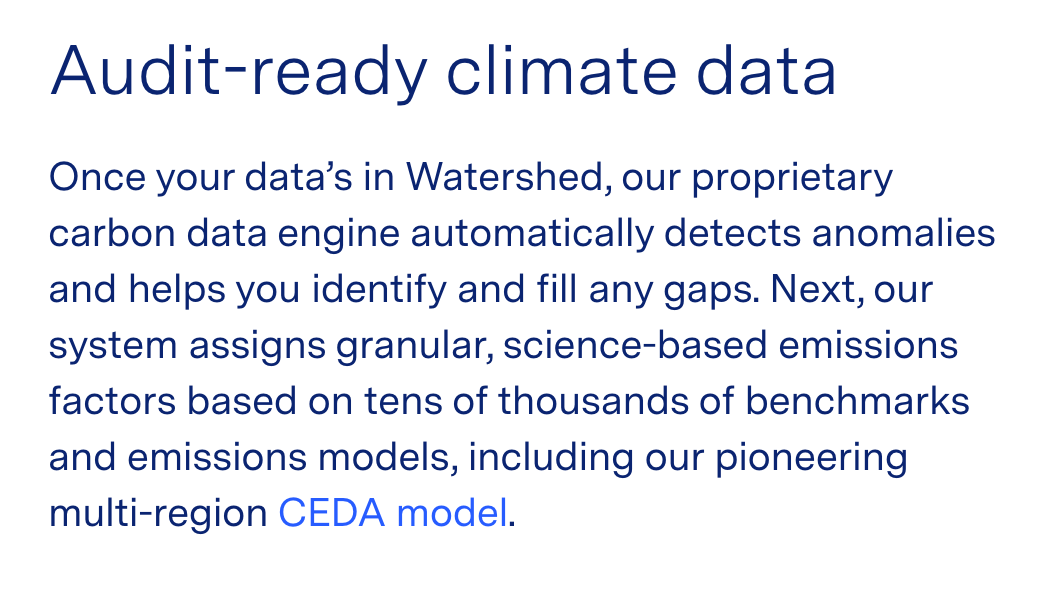The origins of sustainable investing's heavenly chorus
Sounds a lot like a special interest
The late Joan Bavaria is known as a founder of contemporary socially responsible investment, an umbrella that includes sustainable investing. Bavaria founded Trillium Asset Management as a place for investors to align their wealth creation with their values whether that be the environment or anti-tobacco.
Inspired by Exxon Valdez oil spill, in 1990 Bavaria co-founded the Coalition of Environmentally Responsible Economies, the well known financial advocacy group that now goes only by its acronym, Ceres.
In 1997, Ceres partnered with their consultants, research advocate group, the Tellus Institute, to establish the Global Reporting Initiative (GRI), the first standards setting framework for corporate sustainability disclosure.
At the time, Tellus Institute’s founder, Paul Raskin worked with the Stockholm Environment Institute (SEI) through the Global Scenario Group to create a set of scenarios for future global development.
Raskin had been involved with earlier IPCC works and scenario discussions, and the development of scenarios for UNEP’s third Global Environment Outlook. This early collaboration continues to be influential in the development of scenario narratives used by the IPCC.
[As well, Tellus researcher, Richard Rosen, has provided important critiques of IPCC scenario use and development.]

Bavaria and Raskin had social and economic transformation as a goal of their endeavors.
Bavaria wrote with objection to the changing nature of financial markets around this time.
What started as a niche approach to meeting select investors’ value demands turned into a concentrated effort to reorient the financial system,
Those promoting sustainable investments are squared off against the high-velocity world of arcane financial products and fast-moving global trading that knows no community and cares not at all for anything except results defined by the compounding of capital. This high-velocity world produces hundreds of ways to invest each year, such as the exchange traded funds that are being widely used as proxies for the general market, or the now old and too plentiful hedge funds or private equity funds that proliferate, occupying space in investment portfolios with very little social or environmental accountability.
To fight this dramatic change, Bavaria worked to strategically embed her advocacy groups as a “necessary part of a more sustainable economic system” with her alternative future vision being the “world races backward toward a voracious capitalist system that tramples nature and the defenseless.”
Bavaria’s transformed future placed her organizations as authorities (regulators if you will) of corporate disclosure,
Transparency includes the availability of comprehensive data on political contributions, business support of political organizations, and lobbying dollars. Through transparency we have again created the distance between government and commerce that is necessary in a democracy and that was envisioned in the U.S. Constitution.
Apparently, Bavaria did not foresees the rise of tax exempt groups, like her own, to to hide the way money moves around for political purposes.
Bavaria’s vision rings of laissez faire constitutionalism, which has been viewed, depending on era, as an ideal that protects everyone from government or as a means of securing power among the privileged class.
It should not be lost that Bavaria proposes limiting government fettering in business by placing her own organizations as warden, eventually pursuing formal regulation as designed in her own interest.
These efforts aligned with the Tellus narrative vision of the “great transition” whereby,
a reorganized UN expresses the international solidarity of the new development agenda as the dominance of the nation-state fades
Advocacy organizations would then guide market practices,
Enlightened businesses would increasingly seize the initiative, showing that ecoefficiency, green marketing and social responsibility offer a competitive advantage. Corporations that pursue new codes of conduct would be rewarded in the market place, while those that do not would be punished by an increasingly informed and vigilant public mobilized by NGOs.
Mind you, a demise of the nation-state is counter to core UN sustainable development principles that provide an important role for sovereignty. The 1992 Rio Declaration puts forth in Principle 2,
States have, in accordance with the Charter of the United Nations and the principles of international law, the sovereign right to exploit their own resources pursuant to their own environmental and developmental policies, and the responsibility to ensure that activities within their jurisdiction or control do not cause damage to the environment of other States or of areas beyond the limits of national jurisdiction.
The underlying values and processes embedded in the institution of socially responsible investing seeks a reallocation of oversight for finance from governments to advocacy groups.
But the heavenly chorus is known to have an upper class accent.
Since GRI, other advocacy groups and financial actors have supported advancement of disclosures while simultaneously engaging various angles in the new financial regime pursued. Rapid consolidation in the sustainable investing reporting area was ushered along by Bloomberg Philanthropies, ClimateWorks, and Tom Steyer’s private foundation, TomKat Charitable Trust.
In 2020 and 2021, the ClimateWorks finance program, gave over $6.3 million in grants relevant to the consolidation of disclosure standards. The finance program is advised by Curtis Ravenel, former head of Bloomberg’s Sustainable Business and Finance Group.
Consumers’ Research, an advocacy group with a particular destain for ESG investing, took up a FOIA investigation into one of the SEC’s calculative practices for carbon disclosures. The group uncovered close working relationships between the SEC employees, firms, and those pushing for disclosure regulations.
Below is an email exchange between an SEC employee, a representative of Ceres, and Ravenel, who spoke on behalf of both “Bloomberg” and a carbon accounting start-up. The SEC appears to be asking Ravenel for politically useful analytical assistance to which Ceres clarifies exactly is needed.
A democratic problem in all this is that powerful actors have displaced public conflict about actual sustainability projects to be supported by coherent state regulations, with private conflict about corporate disclosures to be managed by a special interest own tax exempt organizations (and maybe captured regulators).
The public is left with nothing of substance to debate on how to meet its goals of “sustainability.” Meanwhile, there are rather serious problems on the ground in how and to what end climate finance is deployed to garner a nod of approval from investors’ increased scrutiny of disclosures.
Today, several of the leaders in the development and advancement of disclosures work together in advancing a carbon accounting platform, Watershed. For a price, they’ll sell you everything you need to meet the standards they worked so long to develop. And their proprietary model(s) provide all the transparency their NGOs decided the public should want.





This also smells of the WEF and "The Great Reset"...
I'm very *Conflicted* about this post. There is a host of missing context and pragmatism that makes the tone and insinuations bordering on misinformation.